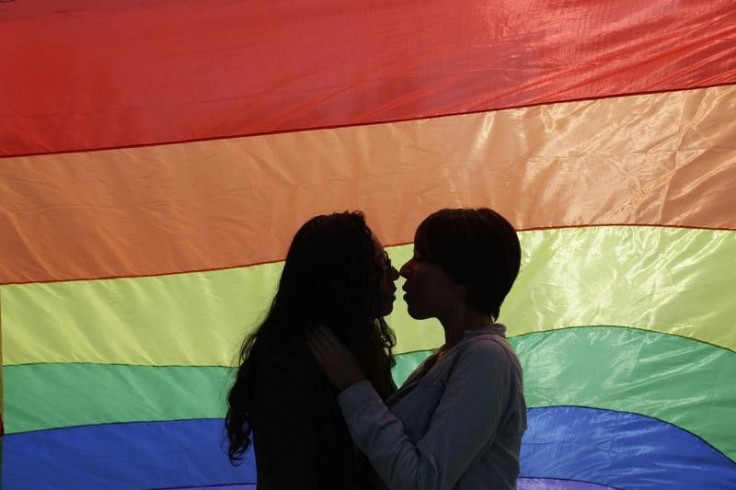Lesbian, Gay, Bisexual Kids Bullied More Throughout School

(Reuters Health) - Lesbian, gay and bisexual (LGB) adolescents are more likely to be bullied and victimized throughout elementary and high school than heterosexual students, according to new research.
"Bullying in general - as has been reported by others - decreases as kids go through school, but the disparity does not," said Dr. Mark Schuster, the lead author of a research letter published in The New England Journal of Medicine.
"We found this persistent pattern across all the grades for bullying and victimization," said Schuster, who is chief of general pediatrics at Boston Children's Hospital and a professor at Harvard Medical School.
Previous research has found that LGB youth are at increased risk of bullying compared to their heterosexual peers, Schuster and colleagues write.
But most research on school bullying relies on older teens or adults to recall how often they were targeted in the past, they point out.
The new study included interviews with 4,268 students from Alabama, Texas or California who were in fifth grade when they entered the study.
The interviews included questions about current bullying and victimization, such as social exclusion and physical harm. Students were considered as bullied or victimized if they reported episodes happening at least weekly.
The students were then interviewed again in grades seven and 10. They were asked about their sexual orientation and attractions during the final interview.
Overall, 21 percent of 10th-grade girls and 8 percent of boys reported some attraction to members of the same sex.
While the percentage of students - LGB or not - reporting bullying or victimization decreased as the participants aged, LGB students remained more likely to report those events.
Across all grades, LGB students were about 91 percent more likely to be bullied and 46 percent more likely to be victimized, compared to their heterosexual peers.
For example, about 8 percent of heterosexual students and about 13 percent of LGB students had reported being bullied in fifth grade. That fell to about 1 percent of heterosexual students and about 4 percent of LGB students in tenth grade.
Peer victimization, covering behaviors ranging from social exclusion to physical harm, was reported by about 21 percent of fifth-graders in the heterosexual group and about 26 percent of fifth-graders in the LGB group. By tenth grade, about 6 percent of heterosexual students and about 10 percent of LGB students said they were being victimized.
The researchers point out that the fifth grade is "before most youth are likely to be aware of or disclose their sexual orientation." Yet even in fifth grade, students who were later identified as sexual minorities were at an increased risk for being bullied or victimized.
Schuster said he can only speculate on why LGB people that young may be at greater risk for those experiences. One possibility is that some kids may be viewed as "gender variant" by their peers, but there could be a number of reasons.
The differences in bullying and victimization occurring as early as fifth grade is one of the study's most interesting findings, said Michelle Birkett, a research scientist at the IMPACT LGBT Health and Development Program of Northwestern University Feinberg School of Medicine in Chicago.
"Some kids do come out that young or know very early, but some don’t," said Birkett, who was not involved in the new research.
She said for bullied or victimized kids, finding supportive people is important. Those can include peers, trusted adults such as family members, or people at school.
"No matter what the reason you’re getting bullied, it’s important that it’s taken seriously," Birkett said.
Schuster said parents also have to recognize that bullying is a real issue with serious consequences. They can look for bruises or scratches that don't have an obvious cause, or see if their children are anxious, depressed or avoiding school or the school bus.
Parents should also set good examples at home, he said. For example, parents shouldn't mock or make fun of LGB individuals, because they may unknowingly make their LGB children feel rejected.
"For the kids who aren’t sexual minorities, it’s also sending a message that it’s okay to mock people who are gay," Schuster said.
SOURCE: http://bit.ly/1F6hthu The New England Journal of Medicine, online May 6, 2015.
(By Andrew M. Seaman)



























